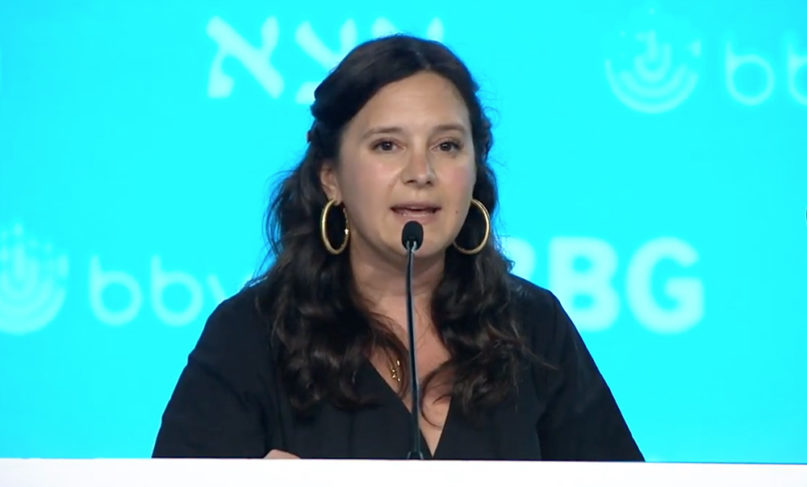(RNS) — It’s not often in the “white hot arc of the moment,” as my college journalism professor referred to the news cycle, that we have an opportunity to consider the state of discourse itself. Yet in the past two weeks, we’ve had two.
On Monday (July 13), Bari Weiss resigned her job as an opinion writer at The New York Times, making public her letter calling the hot-take chatter on Twitter the paper’s “ultimate editor.” A week earlier, an open letter in Harper’s magazine, signed by influential writers, musicians, journalists and others from every persuasion of the political spectrum, identified a scourge of intellectual intolerance from the right and the left. Predictably, the “tweetstorm” that followed was swift and harsh.
The Talmud — the 1,500-year-old proverbial scrapbook of Jewish legend, law and rabbinic debate — has something profound to teach us about what we’ve come to call cancel culture. As the text was compiled in the fourth century, the ancient rabbis decided to leave the dissenting opinion in, rather than edit it out. As the great 20th-century rabbi Abraham Joshua Heschel wrote, “Is it possible to have a living Torah without the struggle of opposites, without disputes, without the many permutations of ideas and outlooks?” Debate and dialogue, not dogma, is foundational to the Jewish way of learning and thinking.
Yet, a friend of mine recently lamented about our country, “There is precious little communication among those who hold truly diverse opinions.”
We don’t have to agree with opposing views, but we benefit by taking the time to understand them, if only to refine our own thinking. Understanding takes intellectual effort and a willingness to truly expand our horizons — not narrow our vision. I know from experience that this effort can be extremely time-consuming and frustrating. It’s easier to come up with reasons to ignore differing views or approaches, especially if they make us uncomfortable or don’t fit our narrative.
But the Talmudic rabbis challenged us to “Make your heart into many chambers,” so we can hold opposing views and see from another person’s perspective. As the Harper’s letter states, “The way to defeat bad ideas is by exposure, argument, and persuasion, not by trying to silence or wish them away.” Yes, some ideas edge toward the extreme, but that only makes meaningful conversation more challenging. A heart of flesh can evolve; a heart that has become petrified cannot.
One of the things I learned as a journalist, a rabbi and as the CEO of Jewish Family Service in Seattle is that any story is always more complex than it appears and takes time to untangle and understand. To do so, a rabbinic mentor once said, “You have to learn to listen so hard your head hurts.”
We could transform our society if we were willing to recognize how complicated the story really is — if we learned to listen deeply and left room for dissenting voices or different approaches around the table.
As our ancient rabbis understood, debate — and the people who engage in it — is vital to advancing society; it doesn’t degrade it. We gain nothing by turning debates on ideas into attacks on people. Both are part of the arc of the human story, but only one will elevate our community.
(Will Berkovitz is a rabbi and CEO of Jewish Family Service, a 128-year-old social services agency that helps vulnerable individuals and families in the Puget Sound region achieve well-being, health and stability. The views expressed in this commentary do not necessarily reflect those of Religion News Service)





